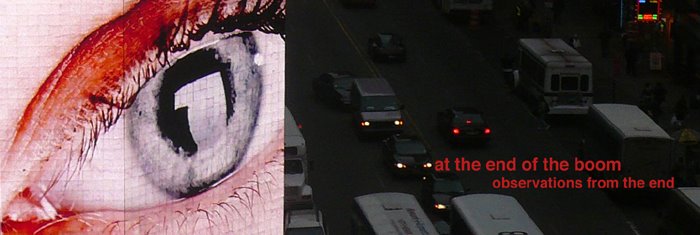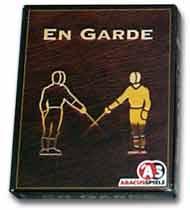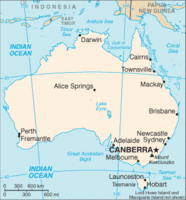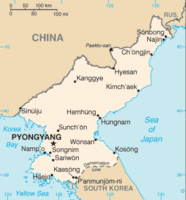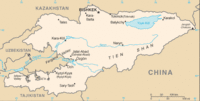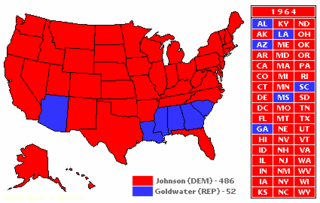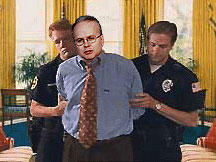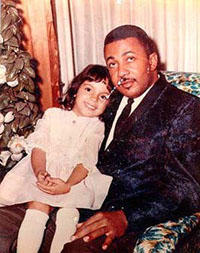
Thursday: Hurricane Stan hits Mexico, floods Guatemala, and a landslide destroys the town of Panabaj, with a population of 800 people. More then 1,200 are dead throughout the region.
Saturday: A 7.6 earthquake hits Pakistan and parts of India and Afghanistan. At least 3,000 are dead and the toll might be higher. UPDATE 10:50 PM EST: 18,000 dead and over 41,000 injured.
I'm beginning to think that the Earth is a little pissed at us. Of course, my mom, a born-again Christian, is thinking it's God's wrath, but I'm going to stick here on Earth and just say that Gaia is pissed off right now.
But disasters happen all the time. It just seems that lately there are more: the Asian tsunami, Hurricanes Katrina, Rita, Stan, and the Iranian and Pakistani earthquakes. These storms/seismic happenings were unprecendented and large, but natural disasters happen. Of course, with global warming (believe it or not), we may be heralding the advent of bigger and more powerful disasters as we destroy natural coastlines, the air we breath, the earth we sit on, and the natural resources that we need to live.
But hey, as long as I have my air conditioning, what do I care? (Note: dripping sarcasm.)
In 1964, the most powerful earthquake to hit the United States (and Canada) occurred:
March 27 - The
Good Friday Earthquake, the most powerful earthquake in U.S. history at a
magnitude of 9.2, strikes
South Central Alaska killing 125 people and inflicting massive damage to the city of
Anchorage.
According to "
The Tsunami Page," the Good Friday Earthquake was the second largest ever recorded to hit the world. 52 aftershocks followed over a period of three weeks. 119 people died of both the quake and the subsequent tsunami it created. The low death toll was due to the fact that the area was not densely populated.
FEMA, our favorite disaster management outfit, has a list of
Federal Disaster Declarations for the US and its territories in 1964. Among them were Typhoon Louise that hit the
Federated States of Micronesia (when we still had them), and
Hurricanes Hilda (Louisiana, October 3),
Cleo (Florida/Georgia, August 27) and
Dora (Florida, September 10).
Other Worldwide disasters that year included:
January 18 - Earthquake in Taiwan affects 62,485 folks.
April 4 - A flood inundates Saudi Arabia, killing 20 and affecting 1,000.
June 13 - A windstorm hits Samoa, killing 250.
November - Another windstorm blows through Vietnam, killing 7,000.
December 22 - What's up with the windstorms? Another one kills 206 in Sri Lanka.
During the year, a drought rampaged Iran, affecting 625,000.
(The above statistics were compiled from various documents at http://unpan.un.org.)The Walker Art Center in St. Paul, Minnesota is curating an interesting show called ANDY WARHOL/SUPERNOVA: Stars, Deaths, and Disasters, 1962-1964. According to the Walker site, the show will bring together more than 20 examples of the artist's early silkscreen paintings juxtaposing his iconic serial images of Marilyn Monroe, Elizabeth Taylor, and Elvis Presley with the artist's evocative and at times disturbing appropriations of car crashes, electric chairs, and other "disasters." The other "disasters" would fascinate me, but only the ones that occured in 1964, of course.And speaking of the Federated States of Micronesia, I almost applied for a two-year position as a project archivist on the island of Yap, but my cat would have had to stay in Hawaii under quarantine for six months, and then another two months once she made it to Yap. I just might have used that as an excuse not to apply for the position in the first place, but I did think about it long and hard. Two years in a Pacific paradise. As long as I could have left during typhoon season, that is. But it sure is pretty...
 I have a cat, goes by the name of Zanzibar. She's a lovely little thing, and I've had her since she was born. I live alone, so when I come home, she's a treat and a friend indeed to have around.
I have a cat, goes by the name of Zanzibar. She's a lovely little thing, and I've had her since she was born. I live alone, so when I come home, she's a treat and a friend indeed to have around.